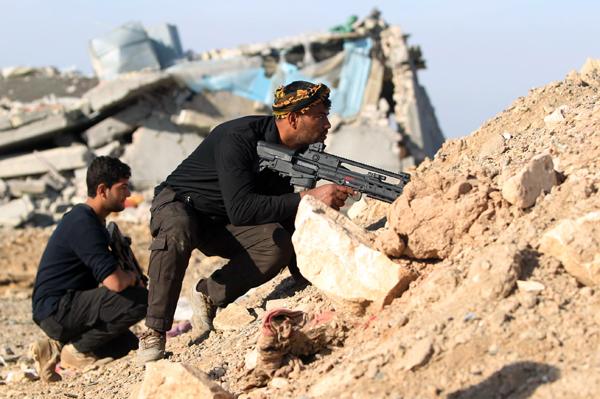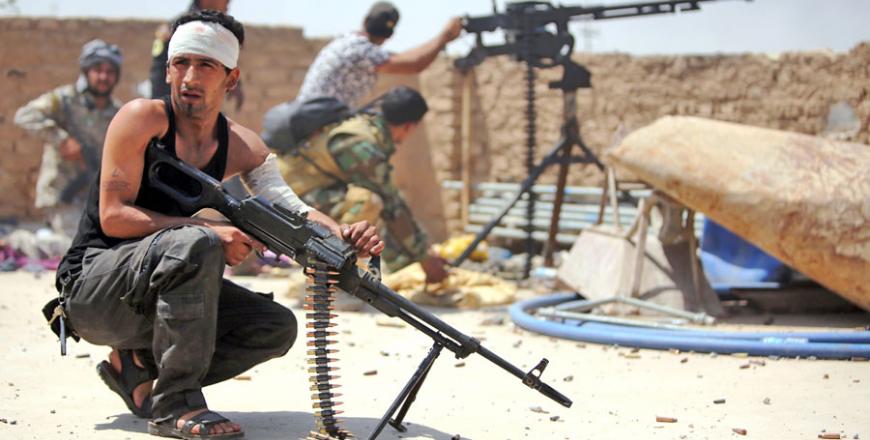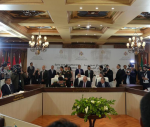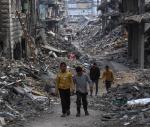You are here
US defence chief Carter, in Baghdad, seeks to step up Daesh fight
By Reuters - Dec 16,2015 - Last updated at Dec 16,2015
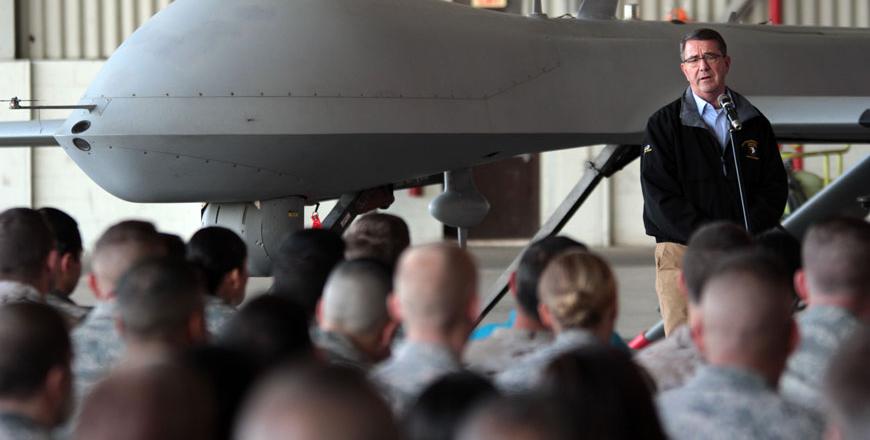
US Defence Secretary Ash Carter addresses the US troops as he stands in front of a drone at the Incirlik Air Base near Adana, Turkey, Tuesday (AP photo)
BAGHDAD — US Defence Secretary Ash Carter and Iraqi leaders on Wednesday discussed the idea of greater US contributions to the fight against the Daesh terror group, including an offer of attack helicopters to help retake territory from the insurgent group.
Carter said Washington is willing to do more to support Iraqi security forces as they battle Daesh and eventually set their sights on Mosul, Iraq's second-largest city that has been under the extremists’ control since June 2014.
But he stressed that all US actions in Iraq would be done with Prime Minister Haider Al Abadi's approval, respecting Iraqi sovereignty. Abadi has not so far requested the use of US helicopter gunships. Powerful Iranian-backed Shiite militia groups who are aligned with the Shiite Abadi's government against Daesh also oppose a greater US presence.
"We were talking about the opportunities that will arise in the future to increase the American contribution to Iraqi success here," Carter told reporters. "Both he [Abadi] and I anticipate that those circumstances will arise as Iraqi forces move north to Mosul, and we're prepared to increase our contribution."
Daesh controls swathes of territory in Syria and Iraq and has a presence in parts of other Arab countries such as Egypt and Libya.
Washington has sought to step up its military campaign against the extremists, who have killed thousands of non-Sunni people in Iraq and Syria and claimed responsibility for attacks in the West, including shootings and suicide bombings in Paris on November 13 that killed 130 people.
The fall of Ramadi, capital of Anbar province, to Daesh in May was the worst defeat for Iraq's weak central government in nearly a year, dampening its hopes of routing the group from the country's north and west.
This month, the United States announced plans to deploy an elite force to Iraq to conduct raids against Daesh there and in neighbouring Syria.
Carter also told Congress this month that the United States is willing to deploy advisers and attack helicopters if requested by Iraq to help it retake Ramadi, west of Baghdad. The United States has around 3,500 troops in Iraq now.
But the deployment of the helicopters and advisers will depend on a request by Abadi, which has not come yet.
"The prime minister did not make any specific requests in connection with helicopters...in connection with Ramadi," Carter said. He added that neither Abadi nor Lieutenant General Sean B. MacFarland, overseeing US operations against Daesh, believe the helicopters are needed right now to win back Ramadi.
"That does not mean that they won't make a difference some time in the future," Carter said.
Complex environment
Abadi faces a delicate domestic political situation as influential Iranian-backed Shiite groups reject any enhanced US military presence in Iraq. After Carter announced the new special operations force, Shiite militias pledged to fight any such US deployment.
"This is a very complex environment that we're operating in, and we have to be attentive to some of the political realities that surround us every single day," MacFarland told reporters on Wednesday. "There are a number of complex relationships that the government of Iraq has to tend to."
Ten thousand members of the Iraqi security forces now surround Ramadi. US officials have in the past expressed frustration at how long it has taken Iraqi security forces to take back the city, but MacFarland said that the Iraqis had made significant progress in dislodging Daesh.
"We're optimistic," he said, while declining to predict how long it would need to retake the city. "The conditions, I think, are properly set for the full liberation of Ramadi."
Speaking to reporters on Wednesday, Abadi said Iraqi forces were "on the verge of breaking the back" of Daesh. "Our progress in Ramadi is a huge progress...and we are moving up north at the moment," he said.
Any US military support must be consistent with Iraqi requests and their style of fighting, MacFarland said. "It's kind of hard to inflict support on somebody," he said.
Carter's visit is part of a Middle East swing that began in Turkey on Tuesday and also aims to coax more contributions from US allies in the campaign against Daesh.
Major population centres in Iraq and Syria remain Daesh strongholds, allowing it to maintain a revenue base and possibly plan attacks outside its core territory.
Related Articles
BAGHDAD — Iraq has for the first time deployed troops trained by the US-led coalition in their campaign to retake the city of Ramadi from Da
WASHINGTON — The United States is willing to deploy Apache attack helicopters and advisers to help Iraq retake the city of Mosul from the Da
BAGHDAD/BEIRUT — Daesh poured more fighters into Ramadi as security forces and Shiite paramilitaries prepared to retake the Iraqi city that


